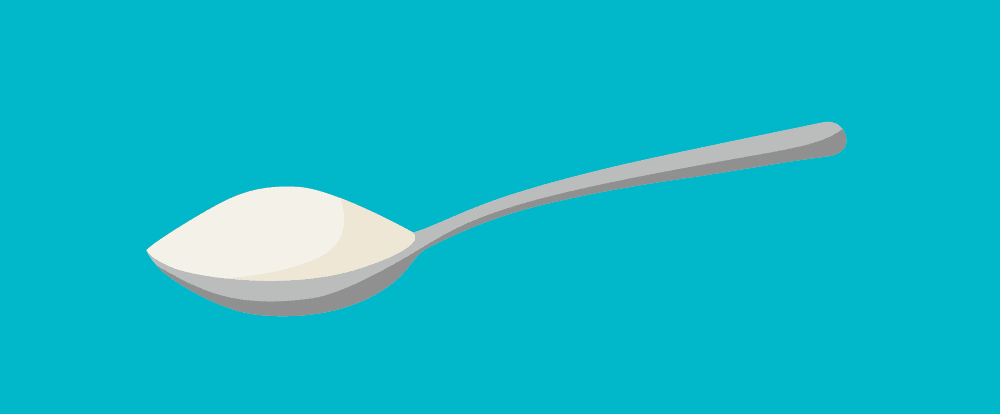Those of us who avoid gluten and are generally health conscious have become accustomed to reading food labels carefully for unwanted ingredients. In doing so, you may have come across one that has raised some questions – maltodextrin.
So I wanted to address the relatively unknown ingredient, maltodextrin. What is it, is it gluten-free, and should you steer clear or consume it with confidence?
What is Maltodextrin?
Maltodextrin is a starchy white powder made from
corn,
rice, potato starch, tapioca, or wheat. It is typically used in foods as a filler (to increase the volume of a food), a preservative (to extend the shelf life of a food), or an emulsifier (to stabilize the texture of a food). It can also be used as a sweetener.
Maltodextrin may sound simple, but it actually requires quite a bit of processing to make it. First, the starch from the source plant is cooked. Next, acids or enzymes are added to further refine and break down the mixture. The result is a powder that is inexpensive for food manufacturers to make, has a neutral taste that can be included in a number of foods and beverages, and a consistency that improves the texture of a number of liquid and solid foods (sauces, dressings, powdered drinks, etc.). You might also find maltodextrin in personal care items like lotion.
Is Maltodextrin Safe To Eat on a Gluten-Free Diet?
So is maltodextrin safe to eat? Well, that depends. Does Maltodextrin have gluten? While many consider maltodextrin to be gluten-free, it can be sourced from gluten-containing sources like wheat, and grains that can mimic gluten, like corn and rice. Maltodextrin from these sources can still cause a reaction in those with celiac disease and non-celiac gluten sensitivity. Maltodextrin from gluten-free sources like potato and tapioca can be tolerated well by those with celiac disease and non-celiac gluten sensitivity.
What Are The Side Effects Of Maltodextrin?
But just because maltodextrin can be gluten-free necessarily doesn’t mean you want it to be a regular part of your diet. Gluten-free or not,
maltodextrin is a highly processed food with a high glycemic index. In other words, your body sees maltodextrin as a refined carbohydrate. Consumption can spike your blood sugar, so those with diabetes or blood sugar management concerns should consume maltodextrin with caution.
In addition,
research shows that maltodextrin can negatively impact gut health. For example,
one study showed that maltodextrin could alter the composition of your gut bacteria in a way that makes you more susceptible to disease. It does this by suppressing the growth of the beneficial bacteria in your digestive system that support immune system function. The same study showed that maltodextrin can increase the growth of bad bacteria like E. coli in the gut. Overgrowths of bad bacteria are associated with autoimmune disorders like Crohn’s disease.
Another study acknowledges that maltodextrin impairs cellular antibacterial responses and suppresses intestinal antimicrobial defense mechanisms. The researchers postulate that maltodextrin contributes to intestinal inflammation which can lead to inflammatory bowel disease.
The Bottom Line
While maltodextrin from gluten-free sources can be safe for those with celiac and non-celiac gluten sensitivity to eat, there is a growing body of research that suggests that maltodextrin may have other adverse effects on health.
We don’t fully understand all of the potential health implications of maltodextrin consumption, and more research needs to be done. So until we know more definitively about the health implications of maltodextrin, I recommend including it in your diet on a limited basis.


7 Responses
Thank you, I have been wondering about maltodextrin which I see on many labels.
I have severe, off-the-charts celiac disease with DH too, with regular endoscopies, partly to see how GF my diet really is. There’s been zero evidence of celiac at time of tests since going GF. And I eat a LOT of corn tortillas and a LOT of rice. There’s NO problem with corn or rice for people with celiac unless there’s been cross contamination. By insinuating otherwise, you are harming people’s health & quality of life who already face limited options. (And btw, the problem is NOT gluten per se, as rice gluten is entirely safe for people with celiac.)
I am having neurologicsl reactions to maltodextrin and wondering what is going on. Thank you for this article.
You are welcome!
Very helpful information thank you
I made some lemonade and drank some. Not long after I had diarrhea and it lasted for most of the day. I stopped drinking it when I saw that the powder had maltodextrin in it. I have gone over what I have eaten and it has all been gluten free. This has been a pretty strong reaction for me.
Been wondering why I had the shits. I’ve just read the label on my soluble vitamins, which I started taking a few weeks ago. Relevant coincidence I think!